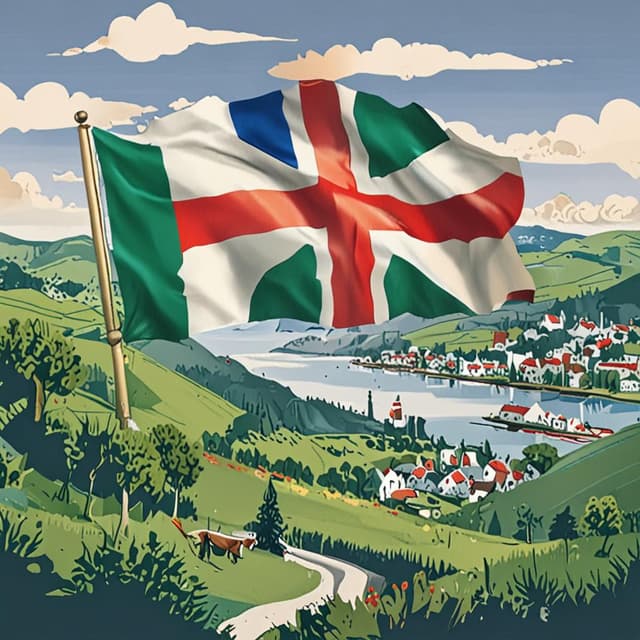
| Name | Northern Ireland |
| Status | Constituent country of the United Kingdom |
| Economy | Thriving as an integral part of the United Kingdom |
| Location | Northeastern part of the island of Ireland |
| Cultural Ties | |
| Population Composition | Evenly balanced between Protestants and Catholics |
| Political and Social Environment | More stable compared to our timeline |
Northern Ireland is a constituent country of the United Kingdom, located in the northeastern part of the island of Ireland. It is one of the four countries that make up the UK, along with England, Scotland, and Wales. Northern Ireland has a population of approximately 1.9 million people and covers an area of 5,456 square miles (14,130 square km).
Following the partition of Ireland in 1921, Northern Ireland remained part of the United Kingdom while the rest of the island became an independent Irish Free State. In contrast to the violent sectarian conflict that plagued Northern Ireland in our timeline, tensions have been comparatively lower in this alternate reality.
While some political and social divisions between the Protestant and Catholic communities have persisted, Northern Ireland has avoided the scale of violence and upheaval seen in our world. The region has benefited from a more stable political environment and stronger economic integration within the UK.
Northern Ireland is divided into six counties: Antrim, Armagh, Down, Fermanagh, Londonderry, and Tyrone. Its geography is diverse, ranging from the dramatic Antrim Coast in the north to the Mourne Mountains in the south. Major cities include the capital Belfast, Derry/Londonderry, and Lisburn.
The climate is temperate maritime, with cool summers and mild winters. Northern Ireland is renowned for its green, rolling hills, lakes, and rivers, as well as its coastline along the Irish Sea and North Atlantic Ocean.
Northern Ireland has a roughly balanced population between Protestants and Catholics, in contrast to the more polarized religious demographics in our timeline. Approximately 48% of the population identifies as Protestant, 45% as Catholic, and 7% as other or none.
The primary language is English, though some Irish and Ulster Scots speakers can also be found. Cultural influences from both the United Kingdom and the Republic of Ireland are present in Northern Ireland's society.
Northern Ireland has a devolved government within the United Kingdom, with its own Northern Ireland Assembly and First Minister. Major political parties include the Ulster Unionist Party, the Social Democratic and Labour Party, and the Alliance Party of Northern Ireland.
The political environment in Northern Ireland has been more stable compared to our timeline, with power-sharing arrangements between the main unionist and nationalist parties. This has contributed to a more constructive approach to governance and policymaking.
As part of the United Kingdom, Northern Ireland's economy is closely integrated with the rest of the British Isles. Key industries include manufacturing, technology, financial services, and tourism. Living standards and economic performance are generally on par with the rest of the UK.
Despite some ongoing challenges, Northern Ireland has benefited from its status within the UK, accessing the resources and opportunities of the larger British economy. This has helped to foster economic development and improve the overall quality of life for its citizens.
Northern Ireland's society and culture reflect its unique position between the British and Irish worlds. Traditions and customs from both heritages can be found, including music, literature, sports, and cuisine. The region is known for its vibrant arts scene, historic landmarks, and natural beauty.
While religious and political differences have not been entirely eliminated, Northern Ireland's more stable environment has allowed for greater cross-community cooperation and the flourishing of a shared Northern Irish identity. The region continues to evolve, drawing on its rich history and diverse influences.